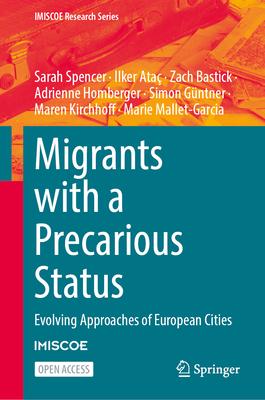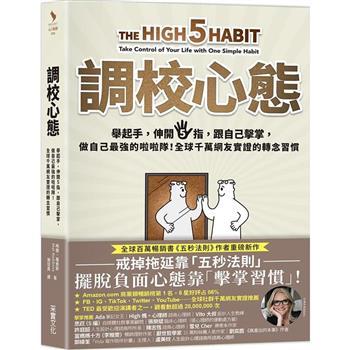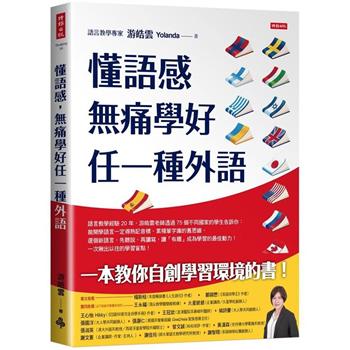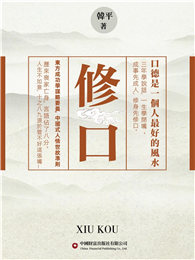This open access book is an exploration of city responses to migrants with a precarious status in Europe. It provides new evidence and analysis from research on three cities in Austria, Germany and the UK: Vienna, Frankfurt and Cardiff. The book explores strategies and services of municipal authorities towards precarious migrants and their cooperation with non-governmental organisations (NGOs) in service provision. It focuses on healthcare, education, housing and access to advice; and particular attention is given to the situation of women.The book develops the concept of precarity in relation to migration status, and of horizontal governance arrangements within municipal authorities. It explores the tension between exclusion and inclusion of migrants who have limited rights of access to welfare services, and contributes evidence on the factors shaping municipal policy making, as well as on the framing of rationales for providing access to essential services.
| FindBook |
有 1 項符合
Migrants with a Precarious Status: Evolving Approaches of European Cities的圖書 |
 |
Migrants with a Precarious Status: Evolving Approaches of European Cities 作者:Spencer 出版社:Springer 出版日期:2024-04-18 語言:英文 規格:精裝 / 普通級/ 初版 |
| 圖書館借閱 |
| 國家圖書館 | 全國圖書書目資訊網 | 國立公共資訊圖書館 | 電子書服務平台 | MetaCat 跨館整合查詢 |
| 臺北市立圖書館 | 新北市立圖書館 | 基隆市公共圖書館 | 桃園市立圖書館 | 新竹縣公共圖書館 |
| 苗栗縣立圖書館 | 臺中市立圖書館 | 彰化縣公共圖書館 | 南投縣文化局 | 雲林縣公共圖書館 |
| 嘉義縣圖書館 | 臺南市立圖書館 | 高雄市立圖書館 | 屏東縣公共圖書館 | 宜蘭縣公共圖書館 |
| 花蓮縣文化局 | 臺東縣文化處 |
|
|
內容簡介
作者簡介
Sarah Spencer was the first Director of the Global Exchange on Migration and Diversity at the University of Oxford and is a former Deputy Director of COMPAS where she is an Emeritus Fellow. She represented COMPAS on the IMISCOE Board of Directors and was chair of the Board from 2018 - 2022. Sarah’s research has focused on human rights, ’integration’ and migrants with an irregular status, on which recent publications include Spencer, S. (2022). The Contested Concept of ’Integration’ in P. Scholten (Ed) Introduction to Migration Studies: An Interactive Guide to the Literatures on Migration and Diversity. Springer. IMISCOE Research Series; Spencer, S. (2022). European city network on migrants with irregular status: Exploring functions and outcomes on a sensitive policy issue, Global Networks 22(3):413-429; Spencer, S. & Charsley, K. (2021). Reframing ’integration’ acknowledging and addressing five core critiques. Comparative Migration Studies 9:18. Springer; Spencer, S. & Triandafyllidou, A. (2020). (Eds) Migrants with Irregular Status in Europe: Evolving Conceptual and Policy Challenges. Springer; Charsley, K., Bolognani, M., Ersanilli, E. & Spencer, S. (2020). Marriage Migration and Integration: British South Asian Transnational Marriages and Processes of Integration. Palgrave MacMillan; and Spencer, S. & Delvino, D. (2019). Municipal activism on irregular migrants: the framing of inclusive approaches at the local level. Journal of Immigrant & Refugee Studies 17 (1): 27 - 43. Sarah’s research on irregular migrants was instrumental in the creation of the City Initiative on Migrants with an Irregular Status in Europe (C-MISE) of which she was Director/later Co-Director from 2017 - 2021. She has also been the PI on a series of empirical research projects with European and North American partners, including most recently the LoReMi project on which this books draws. She received her doctorate from Erasmus University Rotterdam.
Ilker Ataç is a Professor of Political Science at the Department of Social Welfare in the University of Applied Sciences Fulda in Germany. Before, he has taught at the University of Vienna and at the Institute for Migration Research and Intercultural Studies, University of Osnabrück. He has been visiting professor for Politics of Labour Migration at the University Kassel and at the Department of Social Welfare at the RheinMain University of Applied Sciences in Germany. He is on the editorial board of the journal Movements, Journal for Critical Migration and Border Regime Studies. His research focuses on migration and social policy, social movements, civil society, citizenship studies and urban politics. His work has appeared in international academic journals including Citizenship Studies, Ethnic and Racial Studies, Journal of Immigrant and Refugee Studies, Social Movement Studies and Critical Sociology. His recent publications include Ataç, I. & Schilliger, S. (2022). Civil society organisations engaged with illegalised migrants in Bern and Vienna: co-production of urban citizenship in: M. Jørgensen & C. Schierup (Eds) Contending Global Apartheid: Transversal Solidarities and Politics of Possibility. Brill; Ataç, I. & Schwenken, H. (2021). Reconceptualizing and de-nationalizing repertoires of migrant political activism. In: Carmel, E. & Lenner, K. & Paul, R. (Eds) Handbook on the Governance and Politics of Migration. Edward Elgar; Ataç, I. & Steinhilper, E. (2020). Arenas of fragile alliance making. Space and interaction in precarious migrant protest in Berlin and Vienna. Social Movement Studies; Ataç I. & Rygiel K. & Stierl M. (2021). Building Transversal Solidarities in European Cities: Open Harbours, Safe Communities, Home. Critical Sociology, 47(6); Ataç, I. & Schütze, T. & Reitter, V. (2020). Local responses in restrictive national policy contexts: welfare provisions for non-removed rejected asylum seekers in Amsterdam, Stockholm and Vienna. Ethnic and Racial Studies, 43(16), p. 115-134.
Zach Bastick is a research fellow at Harvard University’s Shorenstein Center on Media, Politics, and Public Policy and a research affiliate at the Centre on Migration, Policy, and Society (COMPAS), University of Oxford. His research focuses on the impacts of technology on vulnerable populations - particularly precarious migrants. His expertise in migration focuses on the impacts on, and uses of, digital technologies on migrants. His current work analyses how municipalities respond to the presence of migrants with precarious status from the perspectives of technology, social services, and multi-level governance. He has contributed to the C-MISE City Network, facilitated by the University of Oxford. His work with co-author Marie Mallet-Garcia on the digital exclusion of irregular migrants was recently published in New Media Society (Double lockdown: The effects of digital exclusion on undocumented immigrants during the COVID-19 pandemic). He has held research and teaching positions at the Harvard University Department of Government, the European University Institute, the European School of Political Science, Paris-Sorbonne University, and Sciences Po Paris.
Simon Güntner is a Professor for Spatial Sociology and head of the Sociology Research Unit at Technische Universität Wien. From 2006 to 2009 he was a Senior Policy Officer at EUROCITIES, Brussels, where he coordinated the network’s activities in social affairs and in migration and asylum policy. Between 2009 and 2018 he was a Professor for Social Sciences and Social Policy at HAW Hamburg. His main areas of work are migration, poverty and urban development.
Adrienne Homberger studied Middle Eastern Studies and Media Studies at the University of Zurich and at SOAS, University of London. Her research focuses on refugee and migration movements, gender and anti-Muslim racism. After her studies she worked as a researcher for different civil society organisations on migration across Europe. Since March 2021, she is a project assistant at the TU Wien and works for the international research project LoReMi: Local Responses to Precarious Migrants: Frames, Strategies and evolving Practices.
Maren Kirchhoff is a senior researcher and project staff member of the LoReMi project at the Department of Social Welfare at the Fulda University of Applied Sciences. Before, she worked at the Institute for Development and Decent Work at the University of Kassel, the Philipps-University Marburg and at the Institute for Migration and Intercultural Studies (IMIS) at the University of Osnabrück. In 2021 she completed her PhD, in which she engaged with controversies over deportations. Her research interests are migration and border regimes, law as well as (global) political economy. She has published in Citizenship Studies, Leviathan, and Kritische Justiz and has contributed to three chapters in the book "Protest Movements in Asylum and Deportation", which is part of the IMISCOE research series. Publications include: Kirchhoff, M. (2021): Umkämpfte Grenzen im Inneren Europas - Juridische Auseinandersetzungen um subjektive Rechte nach der Dublin-Verordnung [Contested borders inside Europe - Legal disputes over subjective rights under the Dublin Regulation]. Kritische Justiz 54(2), 190-202. Kirchhoff, M. (2020): Differential solidarity: protests against deportations as structured contestations over citizenship. Citizenship Studies, 24 (4): 568-586. Hinger, S., M. Kirchhoff & R. Wiese 2018: "We belong together!" Collective anti-deportation protests in Osnabrück. In: Rosenberger, S., V. Stern. & N. Merhaut (eds.): Protest Movements in Asylum and Deportation, IMISCOE Research Series, New York et al: Springer, 117-139.
Marie Mallet-Garcia is a senior researcher at the Centre on Migration, Policy, and Society (COMPAS), University of Oxford. She was previously a Marie Sklodowska-Curie at COMPAS. She has expertise on the inclusion of undocumented migrants and has led various research projects that comparatively analyse trans-Atlantic migration policies affecting undocumented migrants. She was part of the City Initiative on Migrants with Irregular Status in Europe (C-MISE) as well as the LoReMi project. Most recently, she has investigated the effects of COVID-19 on undocumented immigrants in Europe and the United States. Her current research focus aims to identify and alleviate obstacles faced by non-EU migrants in accessing basic services in order to improve their social inclusion.
|











